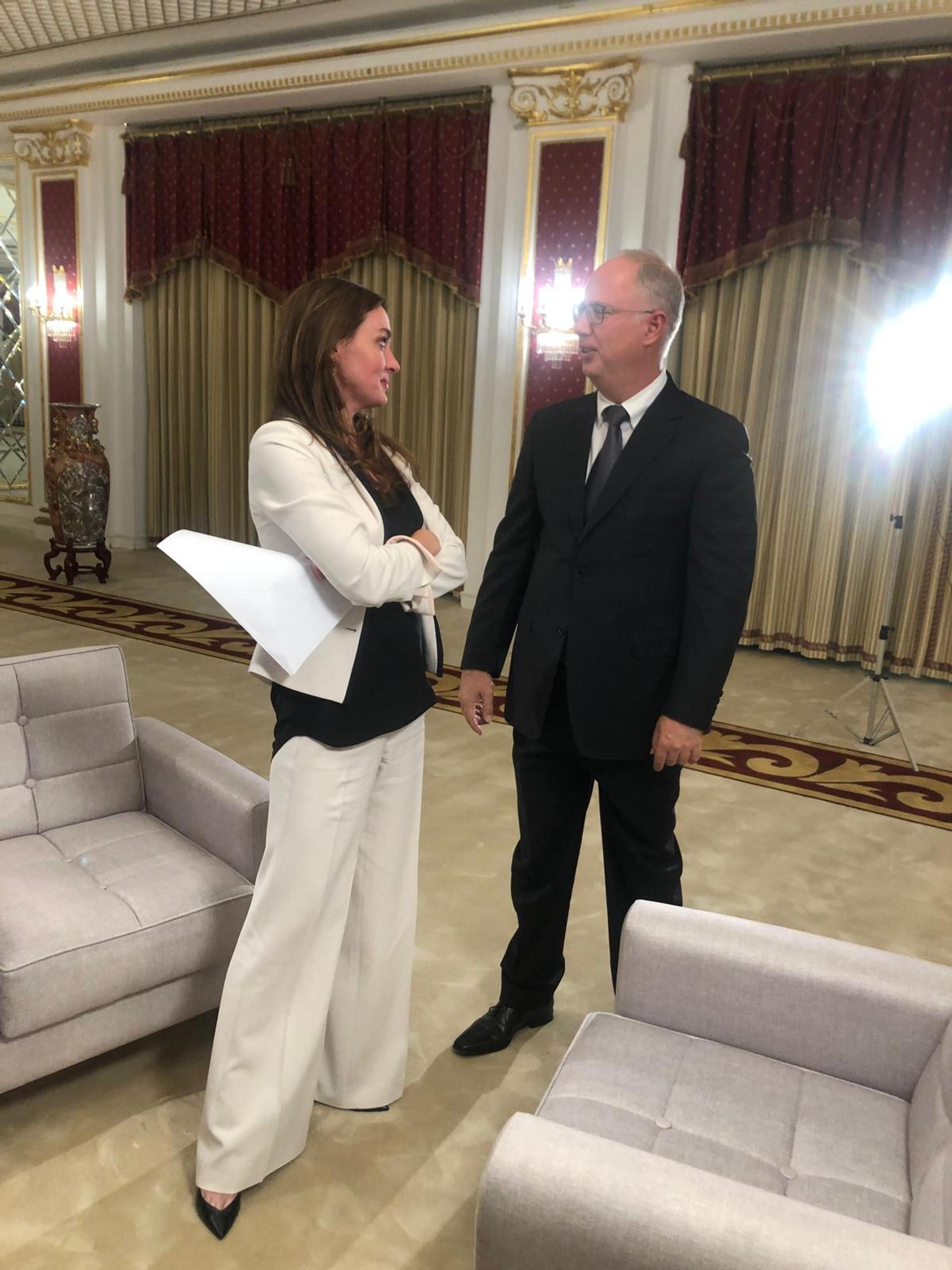Hadley’s view
If there was any doubt that Russia is preparing to re-enter the global economy, the Kremlin just erased it.
Kirill Dmitriev, the longtime CEO of Russia’s sovereign wealth fund, has been named Special Envoy of the President of the Russian Federation for investment and economic cooperation with foreign countries — a role that underscores Moscow’s push to restore economic ties. The appointment also suggests that both Moscow and Washington view Russia’s reintegration, politically and economically, as inevitable. Just last week, Dmitriev met with Trump administration officials in Riyadh for their first round of talks on ending the war in Ukraine.
For Gulf leaders, Dmitriev is a familiar face. Before the war in Ukraine, it was common to see him at Zuma in Abu Dhabi or hosting Russian cultural events in Riyadh. He is also well known to the Trump administration. At a Future Investment Initiative event in Miami last week, Middle East envoy Steven Witkoff credited Dmitriev’s role in securing the release of American schoolteacher Marc Fogel from Russian detention, calling it a “show of good faith” from Vladimir Putin — one that helped kickstart US-Russia talks.
Dmitriev was tasked with reaching out to Washington, through Saudi intermediaries. When Jared Kushner — who was interviewing Witkoff in Miami — asked what made the current envoy confident enough to go to Moscow and pursue Fogel’s release without a prearranged deal, Witkoff said: The Saudis “assured us that this was real. That there was real validity to Kirill and what he was saying could happen.”

I first met Dmitriev in 2015 at the St. Petersburg International Economic Forum, as Saudi Arabia’s then-Deputy Crown Prince Mohammed bin Salman was laying the foundation for what would evolve into OPEC+. It was also the first time I spoke with Dmitriev about the power of “economic diplomacy” — how Moscow planned to reverse centuries of mutual suspicion between Russia and the Gulf.
Most Arab states believe Russia was on the wrong side of history for much of the 20th century. It backed Gamal Abdel Nasser and Egyptian nationalism in the 1950s and invaded Afghanistan in the 1980s, standing against Gulf governments and the US who were backing the Mujahadeen. Relations were so bitter that Saudi King Faisal ended the 1973 oil embargo not due to US pressure, but because he couldn’t allow a Cold War victory be attained by who he believed were a “godless people.”
Yet in recent years, those historical tensions have faded. Russia and the Gulf monarchies have much in common. Both are top-down societies built on fossil fuel wealth that have looked increasingly askance at what they see as Western excess and in the case of forever wars, folly.
That realignment has translated into closer cooperation, with Dmitriev often at the center of discussions — or at least within earshot. I’ve reported on Russia’s deepening ties to the Gulf for over a decade and repeatedly pressed US officials on the implications. Few seemed to take it seriously.
According to the Kremlin, Dmitriev will retain his position as head of the Russian Direct Investment Fund (RDIF), the country’s sovereign wealth fund. Established in 2011, RDIF was designed to attract foreign partners. It has struggled to generate significant capital flows, overseeing just 2.3 trillion rubles ($26 billion) in projects since inception. (By comparison, the Ontario Teachers’ Pension Plan manages ten times that amount.)
Dmitriev’s role was never solely about investment — it’s about diplomacy. During last week’s US-Russia talks in Riyadh, he presented data showing that U.S. companies have lost over $300 billion by pulling out of Russia. The Stanford and Harvard graduate — who began his career with stints at Goldman Sachs and McKinsey — argued that restoring investment and economic cooperation would be “mutually beneficial.”
The Kremlin is laying the groundwork for a global reintegration strategy modeled on its Gulf playbook — one that ties economic incentives to geopolitical leverage. And Dmitriev, who has earned the trust of Gulf royals and Trump’s inner circle, is perhaps uniquely positioned to execute Russia’s plan.
Hadley Gamble is Al Arabiya’s Chief International Anchor, and a former anchor with CNBC covering energy, politics, and business.
